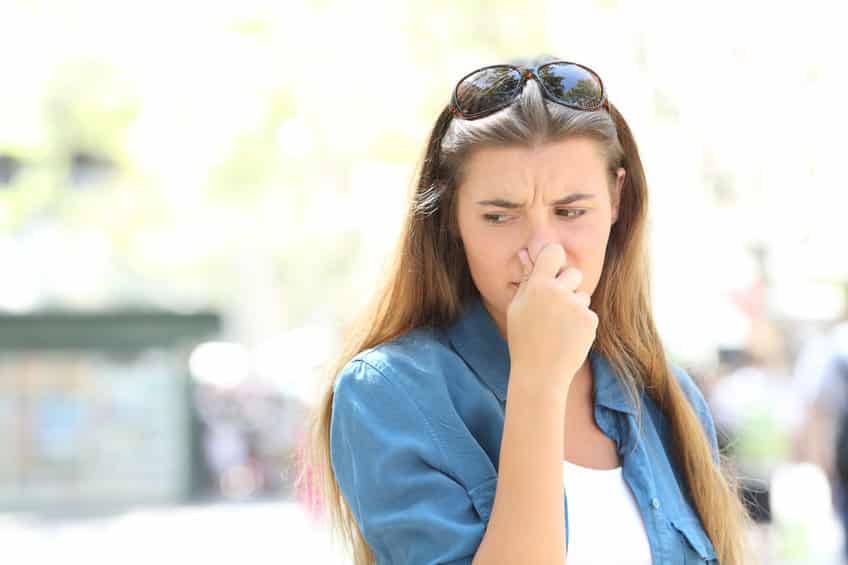By John Salak –
Almost everyone has experienced this unhappy and kind of nauseating realization sitting on a subway, maybe hanging out at a ballgame or simply getting way too close to someone for comfort. Whammy, that awful smell—body odor.
Sickly sweat can be enough to bend knees. Usually, the collateral damage to passersby’s is limited. Well, that apparently wasn’t the case about 250 million years ago. Scientists now suggest that ‘the great dying’ that killed off about 95 percent of life worldwide over several hundreds of thousands of years was caused by, in effect, the Earth’s body odor.
Oh yeah, it wasn’t dinosaurs giving off this deadly stink. University of California-Riverside researchers report that tiny microbes releasing toxic gas stinks were responsible for the biggest mass whacking in history.
Early research suggested that Siberian volcanos spouting greenhouse gases at the end of the Permian period triggered the event, as these gases caused extreme warming and death. What scientists couldn’t figure out until now was how the heat actually caused the extinctions.
The UC Riverside team came up with an answer when it determined that the heat stoked up the microbes’ metabolisms, creating deadly conditions that included a world smelling of an endless pile of rotten eggs. 
“After oxygen in the ocean was used up to decompose organic material, microbes started to ‘breathe’ sulfate and produced hydrogen sulfide, a gas that smells like rotten eggs and is poisonous to animals,” explained Dominik Hülse, an Earth system modeler at the university.
Effectively as ocean photosynthesizers, the microbes and plants that form the base of the food chain rotted, other microbes quickly consumed most of the remaining oxygen, which squeezed out larger organisms. With oxygen down or gone, microbes consumed sulfate and then expelled toxic, reeking hydrogen sulfide. This, in turn, created an even more extreme condition called euxinia.
“Our research shows the entire ocean wasn’t euxinic. These conditions began in the deeper parts of the water column,” Hülse said. “As temperatures increased, the euxinic zones got larger, more toxic, and moved up the water column into the shelf environment where most marine animals lived, poisoning them.”
Is the Great Dying a life (or death) indicator for today’s world? Not exactly, but it may provide some guidance for dealing with current climate challenges. “It would be speculative to superimpose the ancient mass extinction event on today’s planet,” Hülse said. “However, the study does show us that the ocean’s response to higher carbon dioxide concentrations in the atmosphere may be underestimated.”
Oh yeah. body odor may not be deadly for others, but those giving off BO might want to take heed of their stink. Not only is it a social faux pas, but it may signal a serious health condition like hyperthyroidism, which could signal an infection, among other things. Bathing regularly certainly helps but if hyperthyroidism is involved, prescription medications or botulinum injections may be needed.










